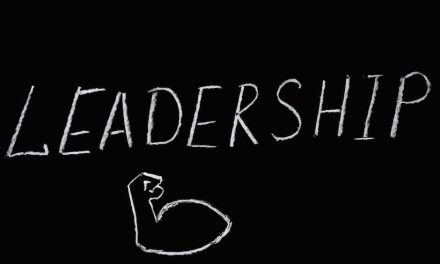Table of Contents
- Introduction
- Time Management Techniques for Managers
- Effective Communication Strategies for Leaders
- Developing Emotional Intelligence in Management
- Conflict Resolution Skills for Managers
- Decision-Making Tools for Effective Leadership
- Building Strong Teams and Collaboration
- Performance Management and Feedback
- Continuous Learning and Professional Development for Managers
- Q&A
- Conclusion
“Empower your manager with the right tools for success.”
Introduction
Enhance Your Manager’s Abilities with These 6 Tools:
1. Project Management Software
2. Communication Tools
3. Performance Tracking Software
4. Time Management Apps
5. Employee Feedback Platforms
6. Training and Development Resources
Time Management Techniques for Managers
In today’s fast-paced business world, effective time management is crucial for managers to stay on top of their responsibilities and lead their teams to success. With so many tasks to juggle and deadlines to meet, it can be easy for even the most seasoned manager to feel overwhelmed. Fortunately, there are several tools and techniques that can help managers enhance their time management skills and become more efficient and productive in their roles.
One of the most important tools for managers to utilize is a calendar or scheduling system. By keeping track of important meetings, deadlines, and tasks in a centralized location, managers can ensure that nothing falls through the cracks and that they are able to prioritize their time effectively. Whether using a digital calendar on their computer or smartphone, or a traditional paper planner, having a clear overview of their schedule can help managers stay organized and focused on what needs to be done.
Another valuable tool for managers is a task management system. This can be as simple as a to-do list or as complex as a project management software. By breaking down larger projects into smaller, manageable tasks and setting deadlines for each, managers can ensure that they are making progress towards their goals and staying on track. Task management systems can also help managers delegate tasks to their team members and track their progress, ensuring that everyone is working towards the same objectives.
In addition to calendar and task management tools, managers can also benefit from using time tracking software. By tracking how they spend their time each day, managers can identify areas where they may be wasting time or getting bogged down in unproductive tasks. This can help them make adjustments to their schedule and focus on activities that will have the greatest impact on their team and the organization as a whole.
Communication tools are also essential for managers looking to enhance their time management skills. Whether it’s email, instant messaging, or project management platforms, having effective communication tools in place can help managers stay in touch with their team members, provide feedback and guidance, and collaborate on projects in real-time. By streamlining communication processes, managers can save time and ensure that everyone is on the same page.
Another valuable tool for managers is a goal-setting framework. By setting clear, measurable goals for themselves and their team, managers can stay focused on what needs to be accomplished and track their progress over time. Whether using the SMART goal-setting method or another framework, having goals in place can help managers prioritize their time and make decisions that align with their objectives.
Finally, managers can enhance their time management skills by practicing self-care and prioritizing their own well-being. By taking breaks, getting enough sleep, and engaging in activities that recharge their batteries, managers can avoid burnout and stay energized and focused on their work. By taking care of themselves, managers can better take care of their team and lead by example.
In conclusion, effective time management is essential for managers to succeed in today’s fast-paced business environment. By utilizing tools such as calendars, task management systems, time tracking software, communication tools, goal-setting frameworks, and practicing self-care, managers can enhance their abilities and become more efficient and productive leaders. By prioritizing their time and focusing on what matters most, managers can lead their teams to success and achieve their goals.
Effective Communication Strategies for Leaders
Effective communication is a crucial skill for any leader to possess. It is the foundation upon which successful relationships, both personal and professional, are built. As a manager, your ability to communicate effectively can make or break your team’s success. Fortunately, there are several tools and strategies that can help enhance your communication skills and improve your effectiveness as a leader.
One of the most important tools for effective communication is active listening. This means fully engaging with the person you are speaking to, paying attention to their words, and responding thoughtfully. Active listening shows that you value the other person’s perspective and helps to build trust and rapport. It also allows you to better understand the needs and concerns of your team members, enabling you to address them more effectively.
Another key tool for effective communication is empathy. Empathy involves putting yourself in the shoes of others and understanding their emotions and perspectives. By showing empathy towards your team members, you can create a more supportive and inclusive work environment. This can lead to increased morale, productivity, and overall team performance.
Clear and concise communication is also essential for effective leadership. Avoiding jargon and using simple language can help ensure that your message is understood by everyone on your team. Additionally, providing clear instructions and setting expectations can help prevent misunderstandings and confusion. By communicating clearly and effectively, you can help your team stay focused and on track towards achieving their goals.
Feedback is another important tool for effective communication. Providing regular feedback to your team members can help them understand their strengths and areas for improvement. Constructive feedback can also help motivate and inspire your team to reach their full potential. By giving feedback in a timely and respectful manner, you can foster a culture of continuous learning and growth within your team.
Collaboration is another key aspect of effective communication for leaders. Encouraging open communication and collaboration among team members can lead to increased creativity, innovation, and problem-solving. By fostering a culture of collaboration, you can harness the diverse skills and perspectives of your team members to achieve greater success.
Finally, emotional intelligence is a crucial tool for effective communication. Emotional intelligence involves being aware of your own emotions and those of others, and using this awareness to manage your interactions effectively. By developing your emotional intelligence, you can better understand and connect with your team members, leading to stronger relationships and improved communication.
In conclusion, effective communication is essential for successful leadership. By utilizing tools such as active listening, empathy, clear communication, feedback, collaboration, and emotional intelligence, you can enhance your communication skills and become a more effective leader. By prioritizing communication and continuously working to improve your skills, you can create a positive and productive work environment for yourself and your team.
Developing Emotional Intelligence in Management

Emotional intelligence is a crucial skill for managers to possess in order to effectively lead their teams and navigate the complexities of the workplace. By understanding and managing their own emotions, as well as those of their team members, managers can create a positive and productive work environment. There are several tools that can help managers enhance their emotional intelligence and become more effective leaders.
One tool that can help managers develop their emotional intelligence is self-awareness. This involves being able to recognize and understand one’s own emotions, as well as how they impact others. By being aware of their own emotions, managers can better regulate their responses and make more informed decisions. Self-awareness can be developed through practices such as mindfulness meditation, journaling, or seeking feedback from others.
Another important tool for developing emotional intelligence is empathy. Empathy involves being able to understand and share the feelings of others. By empathizing with their team members, managers can build stronger relationships and create a more supportive work environment. To enhance their empathy skills, managers can practice active listening, ask open-ended questions, and show genuine concern for the well-being of their team members.
Effective communication is also essential for developing emotional intelligence in management. Clear and open communication can help managers build trust with their team members and resolve conflicts more effectively. Managers can improve their communication skills by practicing active listening, being mindful of their body language, and providing constructive feedback in a respectful manner.
Another tool that can help managers enhance their emotional intelligence is self-regulation. This involves being able to control one’s emotions and impulses, even in challenging situations. By practicing self-regulation, managers can avoid making hasty decisions or reacting impulsively, which can lead to negative outcomes. Techniques such as deep breathing, taking a pause before responding, or using positive self-talk can help managers regulate their emotions and maintain composure in stressful situations.
Social skills are also important for developing emotional intelligence in management. Managers with strong social skills are able to build rapport with their team members, resolve conflicts, and collaborate effectively. To enhance their social skills, managers can practice active listening, show appreciation for their team members’ contributions, and foster a sense of camaraderie within the team.
Finally, emotional intelligence can be enhanced through continuous learning and self-improvement. Managers who are committed to developing their emotional intelligence are more likely to succeed in their roles and build strong, cohesive teams. By seeking out training opportunities, reading books on emotional intelligence, and seeking feedback from others, managers can continue to grow and evolve as leaders.
In conclusion, emotional intelligence is a critical skill for managers to possess in order to lead effectively and create a positive work environment. By utilizing tools such as self-awareness, empathy, effective communication, self-regulation, social skills, and continuous learning, managers can enhance their emotional intelligence and become more successful leaders. Developing emotional intelligence takes time and effort, but the benefits are well worth it in terms of improved relationships, increased productivity, and overall job satisfaction for both managers and their team members.
Conflict Resolution Skills for Managers
Conflict resolution is an essential skill for managers to possess in order to effectively lead their teams and navigate challenging situations in the workplace. By utilizing the right tools and techniques, managers can enhance their abilities to address conflicts and promote a positive work environment. In this article, we will explore six tools that can help managers improve their conflict resolution skills.
The first tool that managers can use to enhance their conflict resolution abilities is active listening. By actively listening to both parties involved in a conflict, managers can gain a better understanding of the issues at hand and work towards finding a resolution that satisfies all parties. Active listening involves giving full attention to the speaker, asking clarifying questions, and summarizing what has been said to ensure that both parties feel heard and understood.
Another valuable tool for managers to utilize in conflict resolution is empathy. By putting themselves in the shoes of those involved in the conflict, managers can better understand their perspectives and emotions. Empathy allows managers to approach conflicts with a sense of compassion and understanding, which can help to de-escalate tensions and foster a more collaborative approach to finding a resolution.
Effective communication is also key to successful conflict resolution. Managers should strive to communicate clearly and openly with all parties involved in a conflict, ensuring that everyone is on the same page and working towards a common goal. By setting clear expectations, providing regular updates, and soliciting feedback, managers can create a more transparent and productive environment for resolving conflicts.
Collaboration is another important tool for managers to use in conflict resolution. By involving all parties in the decision-making process and working together to find a solution, managers can promote a sense of ownership and accountability among team members. Collaboration encourages open dialogue, creative problem-solving, and a shared commitment to resolving conflicts in a constructive manner.
Conflict resolution training is another valuable tool for managers looking to enhance their abilities in this area. By participating in workshops, seminars, or online courses focused on conflict resolution, managers can gain new insights, techniques, and strategies for effectively managing conflicts in the workplace. Training can help managers develop their skills, build confidence, and improve their overall effectiveness in resolving conflicts.
Finally, self-awareness is a critical tool for managers to utilize in conflict resolution. By understanding their own strengths, weaknesses, and triggers, managers can better manage their emotions and reactions in challenging situations. Self-awareness allows managers to approach conflicts with a sense of calm and objectivity, making it easier to find common ground and reach a resolution that is fair and equitable for all parties involved.
In conclusion, conflict resolution is a vital skill for managers to possess in order to effectively lead their teams and promote a positive work environment. By utilizing tools such as active listening, empathy, effective communication, collaboration, conflict resolution training, and self-awareness, managers can enhance their abilities to address conflicts and find constructive solutions. By investing in these tools and techniques, managers can create a more harmonious and productive workplace for their teams.
Decision-Making Tools for Effective Leadership
In today’s fast-paced business environment, effective decision-making is crucial for successful leadership. Managers are often faced with complex challenges that require quick and informed decisions. To enhance your manager’s abilities in making sound decisions, it is essential to provide them with the right tools. Here are six tools that can help your manager improve their decision-making skills and become a more effective leader.
The first tool is data analytics. Data analytics allows managers to gather and analyze large amounts of data to identify trends, patterns, and insights that can inform their decision-making process. By using data analytics tools, managers can make data-driven decisions that are based on facts rather than intuition. This can lead to more accurate and informed decision-making, resulting in better outcomes for the organization.
The second tool is decision trees. Decision trees are a visual representation of the decision-making process that helps managers evaluate different options and their potential outcomes. By using decision trees, managers can systematically analyze the pros and cons of each option and make informed decisions based on the likely outcomes. This tool can help managers make more strategic decisions that align with the organization’s goals and objectives.
The third tool is SWOT analysis. SWOT analysis is a strategic planning tool that helps managers identify the strengths, weaknesses, opportunities, and threats facing their organization. By conducting a SWOT analysis, managers can gain a better understanding of their internal and external environment, which can inform their decision-making process. This tool can help managers capitalize on their strengths, address their weaknesses, take advantage of opportunities, and mitigate threats to make more effective decisions.
The fourth tool is decision matrices. Decision matrices are a structured approach to decision-making that helps managers evaluate multiple criteria and options to make the best decision. By using decision matrices, managers can weigh the importance of different criteria and assess the impact of each option on those criteria. This tool can help managers prioritize their decisions and make informed choices that align with their strategic objectives.
The fifth tool is scenario planning. Scenario planning is a strategic planning tool that helps managers anticipate and prepare for different future scenarios. By creating multiple scenarios and assessing their potential impact on the organization, managers can develop contingency plans and make proactive decisions to mitigate risks and capitalize on opportunities. This tool can help managers navigate uncertainty and make more resilient decisions that position the organization for long-term success.
The sixth tool is decision support systems. Decision support systems are computer-based tools that help managers analyze complex problems and make decisions by providing access to relevant information and analytical tools. By using decision support systems, managers can streamline their decision-making process, reduce cognitive biases, and make more objective decisions. This tool can help managers leverage technology to enhance their decision-making capabilities and drive better outcomes for the organization.
In conclusion, providing your manager with the right tools can enhance their decision-making abilities and make them more effective leaders. By leveraging data analytics, decision trees, SWOT analysis, decision matrices, scenario planning, and decision support systems, managers can make more informed, strategic, and resilient decisions that drive organizational success. Investing in these tools can empower your manager to navigate challenges, capitalize on opportunities, and lead their team to achieve their goals.
Building Strong Teams and Collaboration
In today’s fast-paced business environment, effective management is crucial for the success of any organization. Managers play a key role in building strong teams and fostering collaboration among team members. To enhance your manager’s abilities and help them excel in their role, it is important to provide them with the right tools and resources. Here are six tools that can help your manager become more effective in leading their team.
The first tool that can enhance a manager’s abilities is effective communication. Clear and open communication is essential for building trust and fostering collaboration among team members. Managers should be able to communicate their expectations clearly, provide feedback in a constructive manner, and listen to their team members’ concerns. By improving their communication skills, managers can create a positive work environment where team members feel valued and supported.
Another important tool for managers is time management. Managing multiple tasks and priorities can be challenging, but with the right time management skills, managers can stay organized and focused on their goals. By setting priorities, delegating tasks, and using tools such as calendars and to-do lists, managers can ensure that they are making the most of their time and resources.
In addition to communication and time management, emotional intelligence is another valuable tool for managers. Emotional intelligence involves being aware of one’s own emotions and the emotions of others, and using this awareness to manage relationships effectively. Managers with high emotional intelligence are able to empathize with their team members, resolve conflicts, and motivate their team to achieve their goals.
Furthermore, coaching and mentoring skills are essential for managers who want to build strong teams and develop their employees. By providing guidance, support, and feedback, managers can help their team members grow and succeed in their roles. Coaching and mentoring can also help managers identify and nurture talent within their team, leading to increased productivity and job satisfaction.
Technology is another tool that can help managers enhance their abilities. With the right tools and software, managers can streamline processes, track progress, and communicate with their team more effectively. Project management tools, collaboration platforms, and communication apps can all help managers stay organized and connected with their team members, even in a remote work environment.
Lastly, continuous learning and development are essential for managers who want to stay ahead in their field. By attending training sessions, workshops, and conferences, managers can stay updated on the latest trends and best practices in management. Continuous learning can also help managers expand their skills and knowledge, making them more effective leaders in their organization.
In conclusion, by providing managers with the right tools and resources, organizations can help them enhance their abilities and become more effective in leading their teams. Effective communication, time management, emotional intelligence, coaching and mentoring skills, technology, and continuous learning are all important tools that can help managers excel in their role. By investing in their development, organizations can build strong teams, foster collaboration, and achieve success in today’s competitive business environment.
Performance Management and Feedback
Performance management and feedback are crucial aspects of any organization’s success. As a manager, it is your responsibility to ensure that your team is performing at their best and receiving the necessary feedback to improve. To enhance your abilities in this area, there are six tools that you can utilize to make the process more effective and efficient.
The first tool is goal setting. Setting clear and achievable goals for your team members is essential for driving performance and providing direction. By establishing specific, measurable, attainable, relevant, and time-bound (SMART) goals, you can help your team members understand what is expected of them and track their progress towards achieving those goals.
The second tool is regular communication. Open and honest communication is key to building trust and fostering a positive working relationship with your team members. By regularly checking in with your team members, providing feedback, and addressing any concerns or issues that may arise, you can create a supportive and collaborative work environment.
The third tool is performance reviews. Conducting regular performance reviews allows you to assess your team members’ progress, provide feedback on their performance, and identify areas for improvement. By setting aside dedicated time to discuss performance, you can ensure that your team members are receiving the feedback they need to grow and develop in their roles.
The fourth tool is coaching and mentoring. As a manager, it is important to support your team members in their professional development by providing guidance, advice, and support. By acting as a coach and mentor, you can help your team members set goals, develop their skills, and overcome any challenges they may face.
The fifth tool is recognition and rewards. Recognizing and rewarding your team members for their hard work and achievements is essential for boosting morale and motivation. By acknowledging their efforts and contributions, you can show your team members that their work is valued and appreciated, which can lead to increased engagement and performance.
The sixth tool is performance management software. Utilizing performance management software can streamline the performance management process, making it easier to set goals, track progress, and provide feedback. By using software tools such as performance dashboards, goal tracking systems, and feedback mechanisms, you can enhance your ability to manage performance effectively.
In conclusion, enhancing your abilities as a manager in performance management and feedback is essential for driving success within your team. By utilizing tools such as goal setting, regular communication, performance reviews, coaching and mentoring, recognition and rewards, and performance management software, you can create a supportive and high-performing work environment. By investing in these tools and techniques, you can help your team members reach their full potential and achieve their goals.
Continuous Learning and Professional Development for Managers
Continuous learning and professional development are essential for managers to stay ahead in today’s fast-paced business environment. As a manager, it is crucial to constantly enhance your skills and abilities to effectively lead your team and drive organizational success. Fortunately, there are several tools available that can help you in this journey of self-improvement. In this article, we will discuss six tools that can enhance your manager’s abilities and help you become a more effective leader.
The first tool that can greatly benefit managers is leadership training programs. These programs are designed to help managers develop their leadership skills, improve their decision-making abilities, and enhance their communication and interpersonal skills. By participating in leadership training programs, managers can gain valuable insights and knowledge that can help them become more effective leaders.
Another valuable tool for managers is executive coaching. Executive coaching involves working with a professional coach who can provide personalized guidance and support to help managers achieve their professional goals. Through executive coaching, managers can receive feedback on their performance, identify areas for improvement, and develop strategies to enhance their leadership abilities.
In addition to leadership training programs and executive coaching, managers can also benefit from attending conferences and seminars. These events provide an opportunity for managers to learn from industry experts, network with other professionals, and stay up-to-date on the latest trends and developments in their field. By attending conferences and seminars, managers can expand their knowledge base, gain new perspectives, and enhance their professional skills.
Furthermore, managers can also benefit from reading books and articles on leadership and management. There are countless books and articles available that cover a wide range of topics related to leadership, communication, decision-making, and other essential skills for managers. By reading regularly, managers can stay informed about best practices in leadership and management, and gain valuable insights that can help them become more effective leaders.
Additionally, managers can benefit from using technology tools to enhance their productivity and efficiency. There are numerous tools available, such as project management software, communication tools, and time management apps, that can help managers streamline their workflow, collaborate with their team more effectively, and stay organized. By leveraging technology tools, managers can improve their performance and achieve better results in their role.
Lastly, managers can enhance their abilities by seeking feedback from their team members and peers. Feedback is a valuable tool for managers to identify their strengths and weaknesses, and gain insights on how they can improve their leadership skills. By actively seeking feedback and being open to constructive criticism, managers can continuously learn and grow in their role.
In conclusion, continuous learning and professional development are essential for managers to enhance their abilities and become more effective leaders. By utilizing tools such as leadership training programs, executive coaching, conferences and seminars, reading materials, technology tools, and seeking feedback, managers can improve their skills, stay ahead of the curve, and drive organizational success. Investing in your professional development as a manager is not only beneficial for your career growth but also for the success of your team and organization.
Q&A
1. What are some tools that can enhance a manager’s abilities?
– Time management software
– Project management tools
– Communication platforms
– Performance tracking software
– Feedback and recognition tools
– Training and development resources
2. How can time management software help a manager?
– It can help prioritize tasks, set deadlines, and track progress on projects.
3. What is the benefit of using project management tools?
– They can help organize tasks, assign responsibilities, and track project timelines.
4. How can communication platforms improve a manager’s abilities?
– They can facilitate seamless communication among team members, leading to better collaboration and productivity.
5. What role does performance tracking software play in enhancing a manager’s abilities?
– It can help monitor employee performance, identify areas for improvement, and provide data-driven feedback.
6. How can feedback and recognition tools benefit a manager?
– They can help provide timely feedback, recognize employee achievements, and boost morale within the team.
7. What resources can managers utilize for training and development?
– Online courses, workshops, seminars, and mentorship programs can help managers enhance their skills and knowledge.
8. How can these tools collectively enhance a manager’s abilities?
– By providing support in time management, project organization, communication, performance tracking, feedback, recognition, and ongoing training, these tools can help managers become more effective leaders and achieve better results.
Conclusion
In conclusion, utilizing these 6 tools can greatly enhance a manager’s abilities and improve their overall effectiveness in leading and managing their team. By incorporating these tools into their daily routine, managers can streamline processes, improve communication, and make more informed decisions to drive success within their organization.





